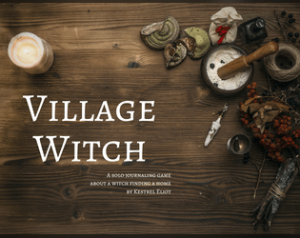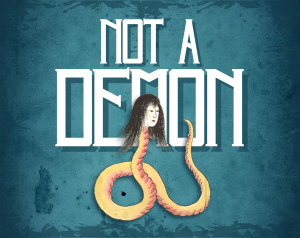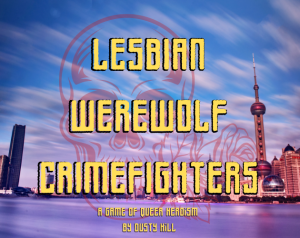A few weeks ago I learned that Untitled Moth Game had been nominated as a finalist for the Best Solo TTRPG category in the CRIT Awards 2023. I’ve chosen to withdraw my game from consideration. So here’s a close look at each of the other contenders and why you should check them out!

Village Witch, by Kestrel Eliot
2020; $9.00
Deck of playing cards or tarot cards, d6
Village Witch is a cozy journaling game about a journeyman witch ready to find a village to settle down in. While the base rules of the game are for a solo game, there are also rules for a two-player version where both of you play witches who went through training together and have promised to keep in touch with each other through writing letters. After answering a few preliminary questions about your witch, you roll a d6 at the start of each season to determine what kind of terrain you’re entering as you meander to the next village on your list of potential homes. You answer reflective questions keyed to each season as well as prompts from the playing cards or tarot cards that you draw. At the end of each season, decide whether you’ll be moving on to the next village, whether you’ll stay in your current village just one more season, or whether you’ll choose to make it your home.
Since its initial publication in 2020, Village Witch has grown into a genre-defining work, inspiring a number of supplements, similar games, and even a tea blend. The designer has also written a walkthrough of the underlying design structure of the game and made it available for free as the Peregrine SRD, to help designers write their own games on the same framework. Village Witch is consistently one of the top-rated solo games on Itch.io, and deservedly so.

Not a Demon, by Cezar Capacle
2022; $12.90
Several d6, of at least two different colors
Not a Demon is a game for one or more players who take on the role of friendly, clever, wise, and protective guardian spirits sent to watch over humankind – who also unfortunately manifest in forms that humans find terrifying. However, their fear and disgust will not daunt you from your mission to be the best guardian and guide you can be to them.
Based on the Dash SRD, Not a Demon features a tight core gameplay loop of visiting a location, identifying the trouble that has called you there, putting together a preliminary plan (hopefully one that plays to your strengths as a spiritual entity that can’t actually interact with the material world!) and defining and tracking consequences as your mission unfolds. There’s plenty of space for your own creativity; you set the initial difficulty for everything, so you have a lot of flexibility in how the game pays out. Failing rolls introduces the possibility of fading away or even turning evil, but there are also recovery mechanics through lucky rolls or taking a step back from your duties during downtime to Commune and observe humans with an open heart.
As always with Cezar Capacle’s games, the layout and graphic design of the game really make it stand out, and the slick visual design is even more impressive when you consider that all the art was sourced from the public domain. The inclusion of separate PDFs for the playbooks, locations, map, and rules reference guide is a helpful touch for the player experience.

Lesbian Werewolf Crimefighters, by Dusty Hill
2022; $10.00
One or more d8s and d10s
Lesbian Werewolf Crimefighters is a game that sets out to tell a specific kind of story and tell it with unabashed enthusiasm. The name of the game says it all: the players create lesbian characters who must balance their normal lives with both their secret superhero identities and their secret werewolf powers.
Unlike the other nominated entries in the Solo TTRPG category, Lesbian Werewolf Crimefighters does not offer rules for solo play. (Note: the CRIT Awards have renamed the category “Best Solo or Stand Alone TTRPG of the year” partway through the final voting round, without explanation.) The facilitator, called the Girlboss or GB, devises scenarios for two to five PCs to encounter, choosing from a wide array of tones and genres to suit the table – for example, the PCs may end up fighting the police, the forces of gentrification, or interdimensional travelers with rocket dinosaurs. The game provides light guidance for the GB to balance these encounters mechanically but keeps the emphasis on making the most enjoyable narrative and player experience possible.
Lesbian Werewolf Crimefighters shines because of these themes of queer joy and community that cross genres and storylines; while the other games in this category (including Untitled Moth Game) have room for queer themes, Lesbian Werewolf Crimefighters centers them proudly. It’s a testament to the power of indie TTRPG creators to create media in which we can see ourselves, and see ourselves as heroes.
You can read more about the CRIT awards here. The final voting round closes July 9, 2023.
